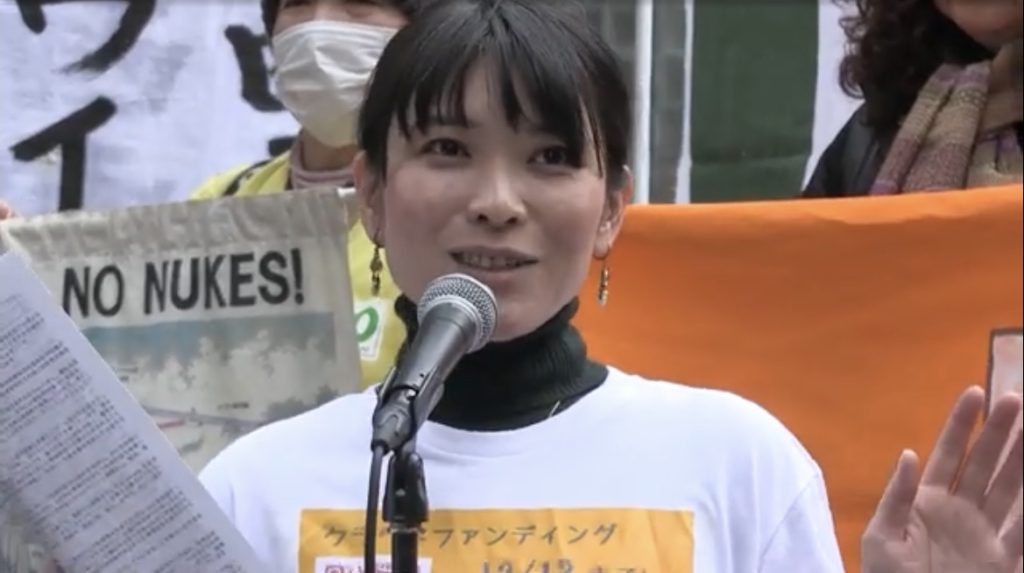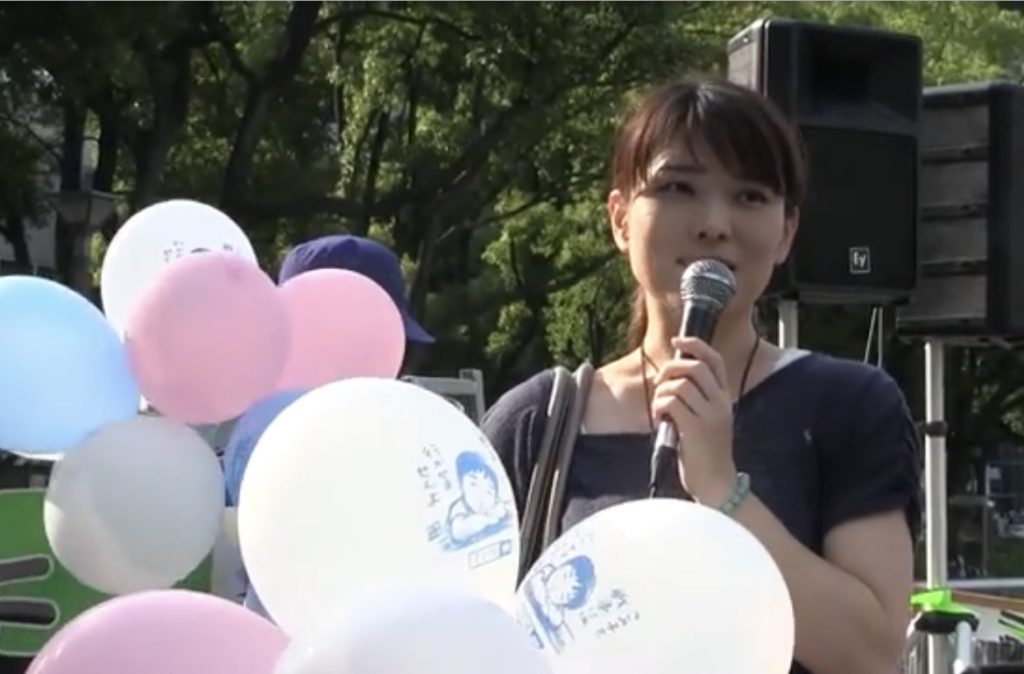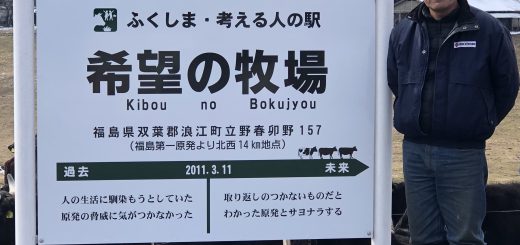Who’s Who: Kusachi Taeko, an ‘ordinary person’ doing extraordinary things
By Ogata Keiko, Deputy Chief of Toold40
Ms. Kusachi Taeko is one of the plaintiffs in the ongoing lawsuit against the extension of the operation periods of aging nuclear reactors in Fukui Prefecture, and also a co-director of the group supporting the legal action, called Toold40. This suit was filed with the Nagoya District Court in 2016. The plaintiffs sought an injunction against the official approval of the extended operation periods of Units 1 and 2 of Takahama Nuclear Power Station (NPS) and Unit 3 of Mihama NPS beyond the current limit of 40 years.
Taeko has been participating in this legal action for about seven years, although she is currently living in Nagoya City, Aichi Prefecture. Some people may question whether a citizen of Nagoya should be participating in a legal action against nuclear power plants in Fukui Prefecture, but Taeko firmly believes that she must take part in such a legal action all the more because she is living in a big city. This conviction is based on her experience in Yamaguchi Prefecture, the westernmost prefecture of Honshu Island.
Taeko graduated from a mission school in Nagoya and then studied in culinary school. She met a Protestant Church missionary while studying cooking at the school, and the two of them were married. In 2007, her husband became a pastor and assumed a new post in Houfu City, Yamaguchi Prefecture.
After the couple moved to Houfu, Taeko came to know about the local movement against the project to construct a new nuclear plant in Kaminoseki Town in the southern part of Yamaguchi Prefecture.
Because of the 30-year-long opposition movement against the nuclear plant project, reclamation work at sea made hardly any progress after the Yamaguchi prefectural government granted reclamation rights to Chugoku Electric Power Co. Then came the nuclear accident at the Fukushima NPS in 2011. The preparation work for constructing the Kaminoseki nuclear plant was suspended, and everyone thought that would be the end of the project. Nevertheless, the project was not cancelled. The Kusachis felt the need to launch a large-scale campaign against the nuclear plant project. They called for the holding of a big rally in which 10,000 prefectural residents would participate. In preparation for this event, Taeko became the head of the committee’s branch in the Houfu area and her husband Daisaku became secretary general of the organizing committee. Eventually, the rally attracted as many as 7000 residents, an unprecedentedly large number in Yamaguchi Prefecture. Despite this amazing number, the event was not taken up in the national media. This fact gave Taeko the strong impression that no matter how many people shouted out loudly against the construction of the new nuclear plant, it would be impossible to halt the project if people in big cities, who account for an overwhelmingly large majority of the Japanese population, were indifferent to it.
After Houfu, Daisaku was assigned to Nagoya. Taeko felt sorry to be unable to work together with the other group members in Yamaguchi Prefecture, but before she said goodbye to them, she declared that she would continue her anti-nuclear power plant activities in the big city. According to Taeko, she had little knowledge of nuclear power plants because she was born and grew up in a big city, and had come to know about the problems involved with such plants by pure chance. She therefore thought it was her duty to continue her activities against nuclear power plants even after she returned to living in a big city. Although she needed courage to become one of the plaintiffs in a major lawsuit, she seemed to have no other option.
Since the start of the lawsuit, she has attached great importance to solidarity with the residents of the areas where the problematic nuclear power plants are located. She says it would be important for the residents to feel that urban residents are also paying attention to their plight, and that such compassion would encourage them and support them. For this reason, Taeko wishes to take part in the local anti-nuclear movement for as long as she can.
Currently, the situation surrounding nuclear power plants is tense. Prime Minister Fumio Kishida aims to restart operations of halted nuclear plants, and also plans to build new ones as part of his “Green Transformation” campaign against climate change. Moreover, he intends to extend the maximum operation period for the country’s existing nuclear reactors from the current 40 years to beyond 60 years.
If the prime minister turns a blind eye to the sacrifices made by local communities, and if the mood about nuclear plant construction projects being unstoppable prevails even in urban areas, Japan will make the same mistakes again.
Taeko feels that this is surely the most critical time for the anti-nuclear power plant movement in big cities since the 2011 nuclear accident in Fukushima.

